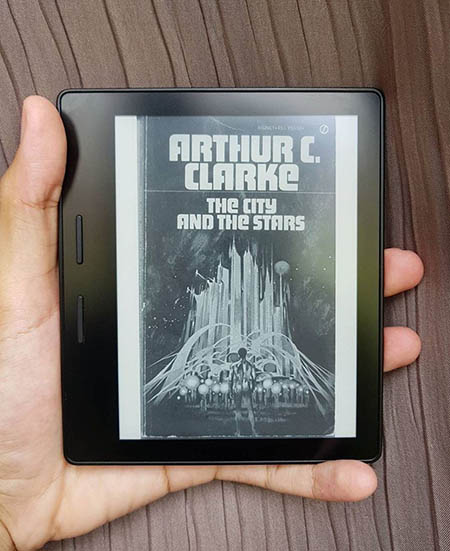Oct 11, 2017 - 2 minutes
📖 The City and the Stars by Arthur C. Clarke

Rating: 🌕🌕🌕🌕🌑
Every time I read an Arthur C. Clarke story (I’ve read four so far), I’m left with an intense desire to leave Earth and explore space, followed by a period of sadness at the realization that I will likely take this fantasy to the grave.
Arthur Clarke isn’t the most gifted of writers, but what a wonderful storyteller he is! The City and the Stars is set a billion years in the future, a time when everything on Earth is dead, save for a city called Diaspar. Once a space-faring Empire, the people of Earth no longer leave the planet; not even the city. The Central Computer, an artificial intelligence put in place by the founders of Diaspar, has kept the city alive, and everyone in it happy (well, except for one dude), for hundreds of millions of years.
It’s hard to say more without spoiling the story. I hope this is just enough to pique your interest.
Oh yes, a bonus bit about the future of male reproductive organs—
It was merely that his equipment was now more neatly packaged when not required; internal stowage had vastly improved upon Nature’s original inelegant and indeed downright hazardous arrangements.
And now for tidbits that are not penis-related:
“Are you going to sleep?”
“I’d like to,” he confessed, “but I’m not sure I can. It still seems a strange custom to me.”
Throughout the earlier part of its history, the human race had brought forth an endless succession of prophets, seers, messiahs, and evangelists who convinced themselves and their followers that to them alone were the secrets of the Universe revealed. Some of them succeeded in establishing religions that survived for many generations and influenced billions of men; others were forgotten even before their deaths.
Perhaps he was no more of a coward than anyone else in Diaspar, but he had the additional misfortune of possessing a powerful imagination.
Alvin was an explorer, and all explorers are seeking something they have lost. It is seldom that they find it, and more seldom still that the attainment brings them greater happiness than the quest.
Hi there! 👋 Want to be informed of new posts via email?